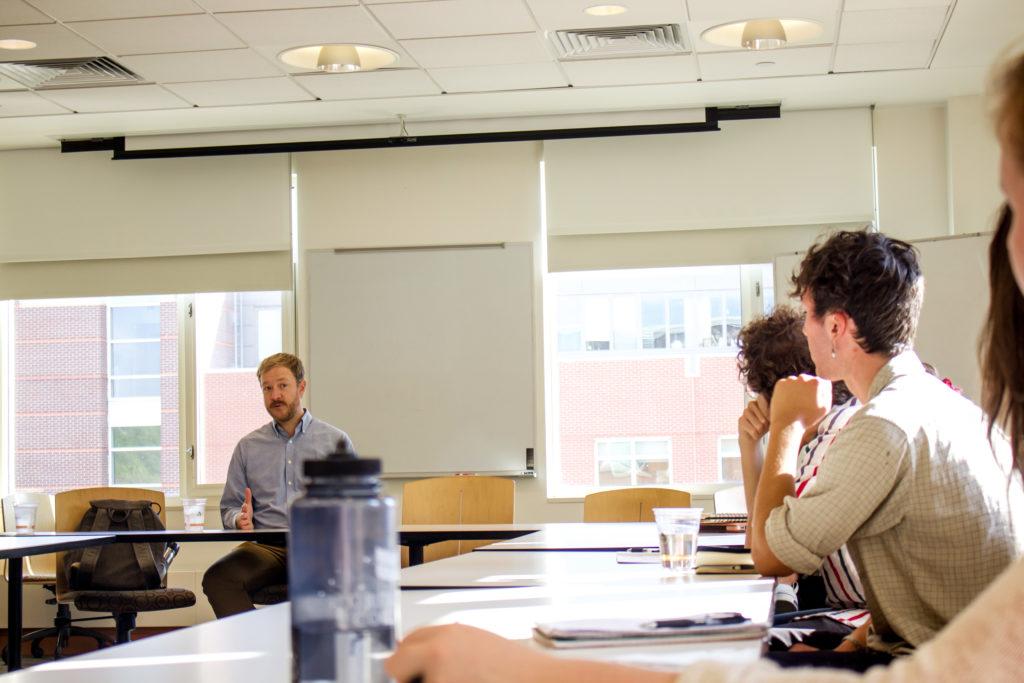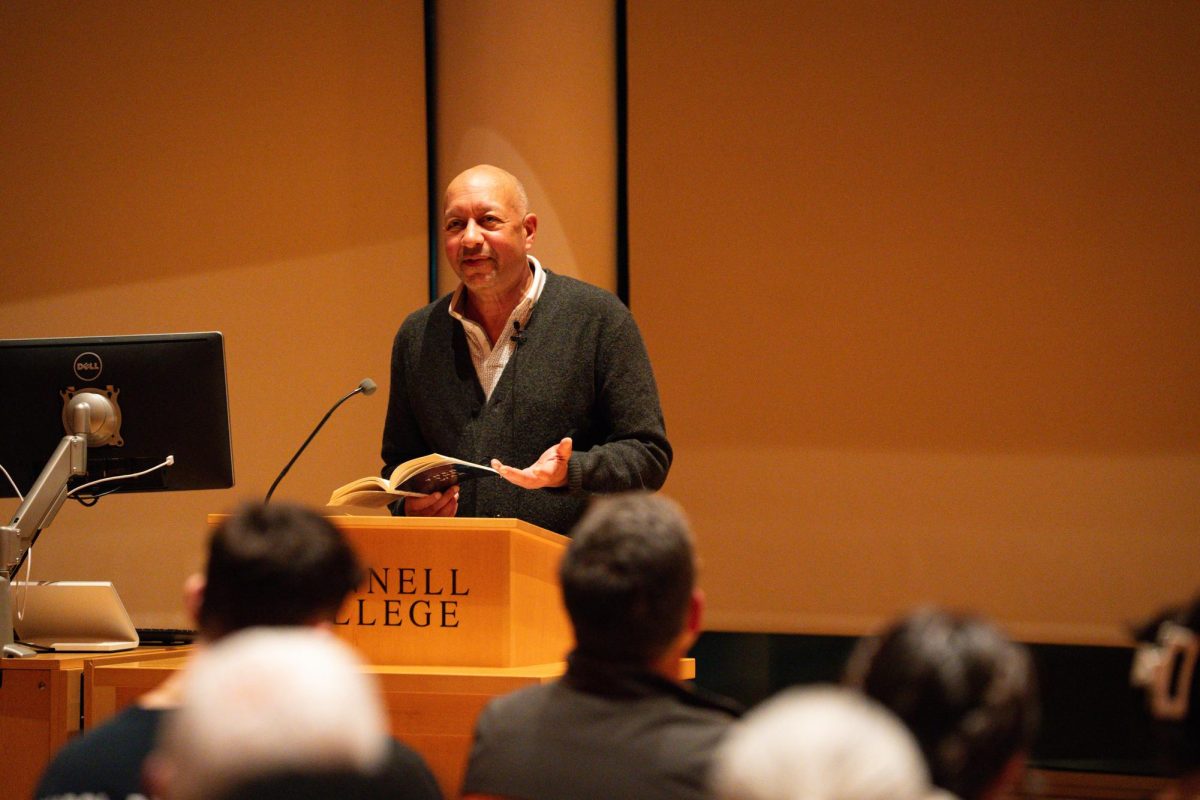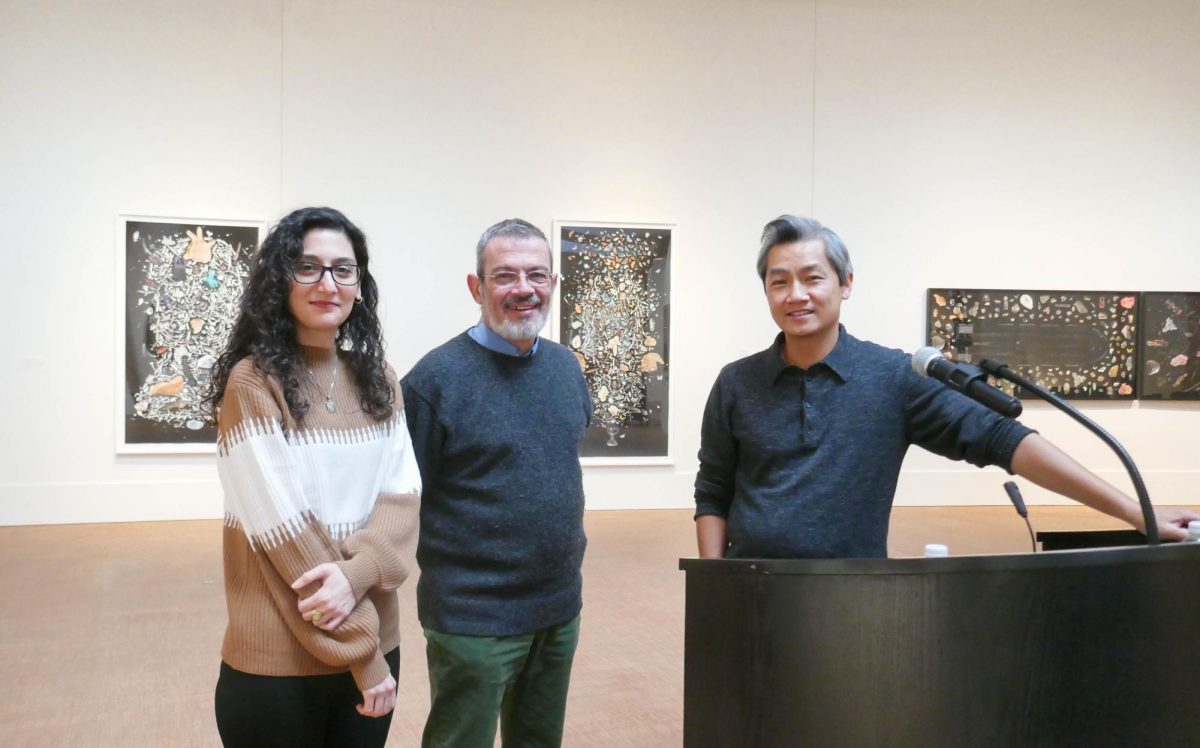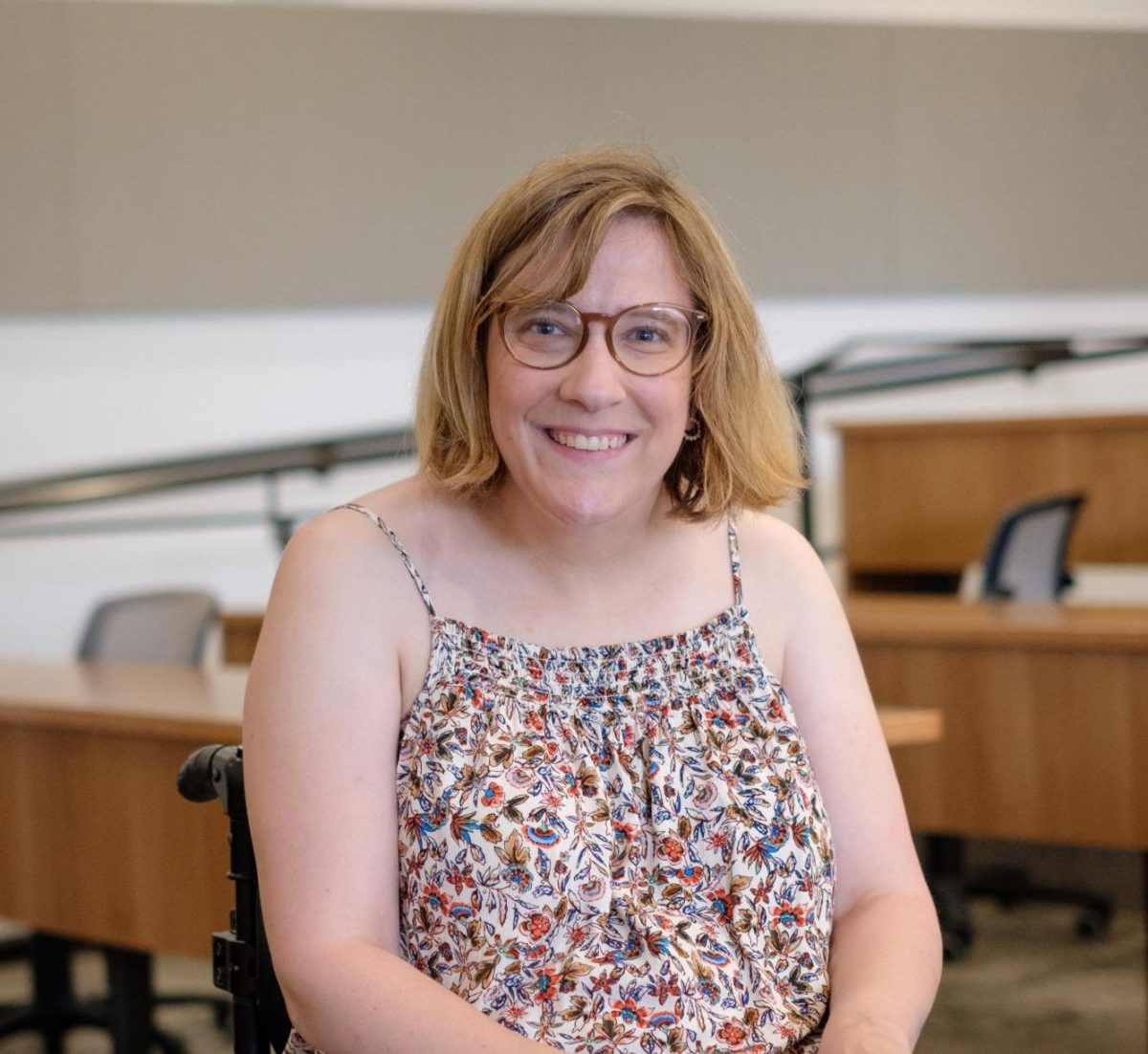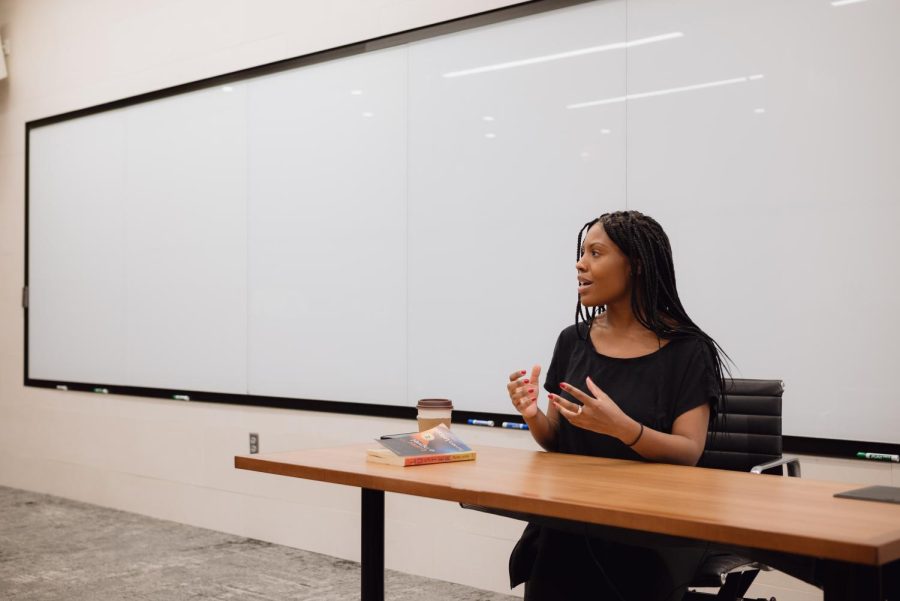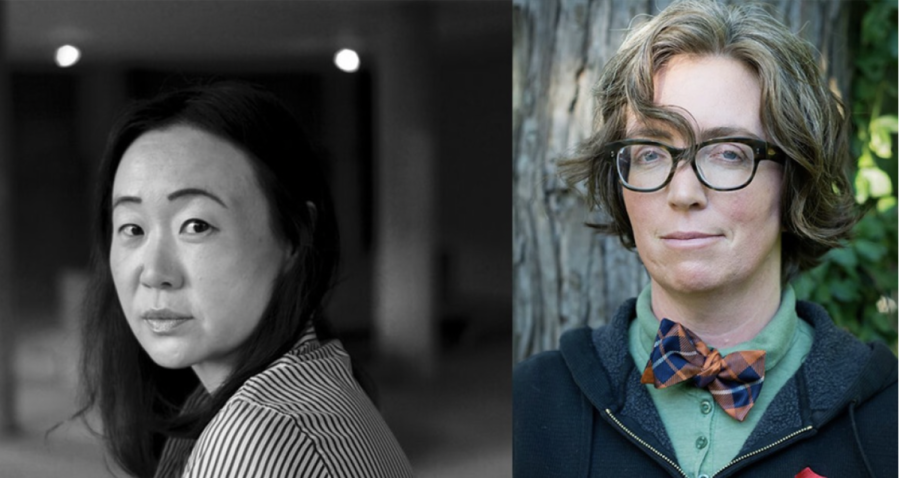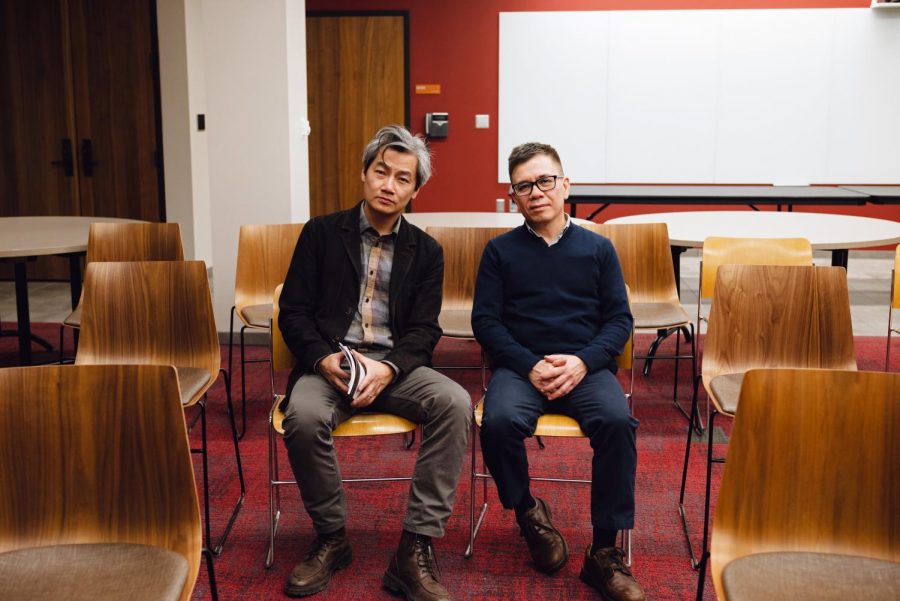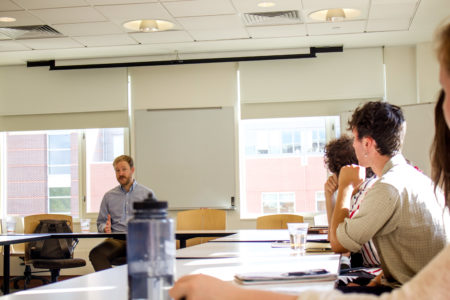
Author Chris Martin continued the Writers @Grinnell series this week, sharing a few of his works at a poetry reading and leading a round table on Thursday. Martin has written three collections of poetry: “The Falling Down Dance,” “Becoming Weather,” and “American Music,” the last of which was selected for the Hayden Carruth Award. Additionally, he is a co-founder and writing teacher at Unrestricted Interest, a program dedicated to enriching the lives of unconventional learners and students on the autism spectrum through poetry. At his roundtable on Thursday, Martin gave students insight on his first forays into poetry, how he approaches the writing process and his love for rap.
The S&B: What does your writing process look like?
Chris Martin: It looks really different for song, rap and poetry. With rap, one of the things that I’ve always done is walk around. So, when I’m writing raps, I’m really more like a Romantic poet, like Wordsworth walking around the Lake District. And especially when I lived in San Francisco and New York, I may have looked crazy because … I’d go around rapping, but it was the best way to work on it. And I think that’s true about poems, too; if you ever want to really nail a poem, memorize it because the parts that are wrong will drive you crazy. My process writing poetry has really changed over the years quite a bit. My favorite thing is to wake up, make a cup of coffee right away and then go read something that’s a little over my head, whether it’s something more abstract in poetry or philosophy, and I’ll read it until either misread something in a really interesting way or encounter something I disagree with or want to see it taken in a different way, and that’s where the poem starts.
The S&B: I see you co-founded Unrestricted Interest to help bring poetry to unconventional learners and students on the autism spectrum. Can you tell me a little bit about your inspiration for this?
CM: [My inspiration was] not only just seeing these writers who struggle in so many areas of their life excel at poetry and bring real strength to it, but recognizing what it is about the fundamentals of poetry that lend themselves to autistic thought, and the really transformative possibilities of poetry. … And it’s great to find a way back into poetry as a group, and to find the ways in which it really changes lives.
The S&B: Who are some of the first poets you were drawn to?
CM: When I grew up, I had this nagging suspicion that, for some reason, I wanted to be a poet before I knew what that meant. And I bought into this idea of the poet as a way to be in the world, rather than just a way to write. Then that got hyperbolically extended by reading the Beats, as it does for a lot of teenagers. When I got to school and took my first class with a poet, which was this incredibly transformative moment, the poet who was teaching the class would tell me these little stories about the poets we were reading. He would have these great anecdotes about how they ate dinner or something. That’s when I knew you could be a poet in the world, that that was a real possibility. I remember [in college] we each had to choose a poet to do a presentation on and … I choose Robert Creeley and, lucky for me, Robert Creeley turned out to be connected to, like, every major poetry tradition starting in the middle of last century. So, by learning about Creeley, who I fell in love with right away, he was involved with things that were going on in San Francisco, he was a central figure for the Black Mountain School, he was involved with the New York poets. He just had this really capacious interest in poetic forms
The S&B: Do you have any advice for aspiring spoken word poets?
CM: For me, the most important thing about reading a poem is finding a line of energy and following it because the performance of the poem taps into that entrainment, that rhythm that bonds people, when you enter the flow of it. And, to me, that’s interesting because there’s this long debate in rap between freestyle and rhythm rap.
The S&B: Which works will you be reading [at the reading]?
CM: I’ll mostly be reading from my new book The Falling Down Dance. I wanted to read these because there’s numerous poems in it that have songs embedded in them or references to songs. I’ll also be reading a poem from my first book that has a cascade of references right towards the end.
The S&B: What writing are you working on now?
CM: One of the things about the vitality of poetry right now and the way it has intertwined itself with cultural and political movements is that I’ve had to ask myself: does the world really need another book of poems by a white, cis, middle-class guy? And I don’t know. I’m not sure. I also want to enter into the conversation, so I’ve been writing a lot of poems about race and finding most of them to be terribly insufficient. It’s been a really immense challenge, but that’s the thing I’m most interested in: trying to figure it out. My wife and I and another artist in Minneapolis, we started a small press that’s going to be publishing a lot of writers of color and a lot of politically motivated works. The aim of the press is to bridge the gap between poetry and politics.




























































